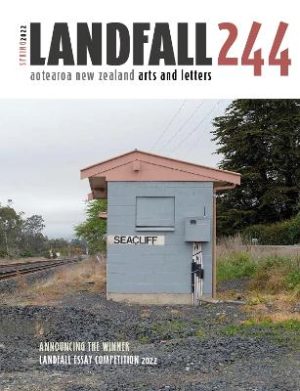Back into writing poetry
Earlier this year, I returned to writing poetry. I’d been focused on writing fiction since the publication of my 2016 poetry collection New Sea Land, with the exception of the music poems I wrote for my 2019 chapbook Big Hair Was Everywhere – most of which dated from 2016-17 anyway.
It was a real joy to return to writing poetry after five years focused on fiction, but I went into it thinking that there were few to no magazines left in Aotearoa that published poetry. Happily, I was wrong about that.
This isn’t meant to be a comprehensive list – check out the New Zealand Poetry Society website for more poetry markets – but here are some poetry magazines I submitted work to in 2022, together with how I got on.
(There are all sorts of ways to get your poetry out there – live performances, competitions, videos, anthologies. Time permitting, I’ll post more about those next year – including what I’ve learned about poetry in Aotearoa from editing the 2021 and 2022 New Zealand Poetry Society anthologies, Kissing a Ghost and Alarm & Longing.)

How I got on
I had poems accepted and published by:
a fine line – “Villagers” in a fine line, Autumn 2022, p. 24
takahē – “Restraints” and “Bento Box, Mt Victoria” in takahē 105, August 2022 (online edition)
Landfall – “Uncles” in Landfall 244, pp. 154-155. (I’m particularly chuffed about that one, as I’ve had reviews published in Landfall previously, but never poetry.)
broadsheet – “The Passage South” in broadsheet 30, November 2022
Tarot – “She Fell Away” and “Closer to the river” in Tarot 5, December 2022.
Thank you to the editors of those magazines!
I submitted unsuccessfully to Poetry New Zealand (which is an excellent yearly magazine/anthology that I’ll definitely be trying again), two competitions, and in a swing-for-the-fences moment, Asimov’s – another place I haven’t been published but would like to be. Happily, there are plenty of other science fiction poetry markets.
I’m very pleased with that ratio of acceptances to submissions – but experience has taught me that one good year of getting work accepted doesn’t guarantee another. Nevertheless, once my current round of novel revisions is finished, I plan to dip my bucket in the poetry well once again – I still have a bunch of ideas for poems, and some partial drafts, to pursue. I hope there will be a collection’s worth of publishable poems by the time I’ve finished.
What I learned
These are pragmatic comments about how to maximise the effectiveness of your submissions, rather than advice on how to write poetry!
Follow the guidelines. If a magazine says they want to see up to five poems, don’t send them six – it will just piss them off. (Well, it would if I was the editor.) If they say they want poems of up to 40 lines, don’t send them a 50-line poem, and so forth. And whatever you do, don’t send the editor a poem they’ve previously rejected! (I don’t *think* I’ve ever done this, and I try really hard not to.)
Find out what the editor likes. What style of poetry do they write themselves? Is that the style of poetry they tend to select for publication, or do they select a wide range of poems and poets? Have they posted or commented about what sort of poems they are seeing too much of, or not enough of?
Find about the journal. Bonza Bush Poetry and the Extremely Academic Magazine of Post-Post-Post Modernist Poetics are unlikely to publish similar poems: which one is your work better suited for?
Send a range of work. This is one I have learned from editing poetry myself: if I have a range of poems I could submit, I try to include some shorter poems as well as those that are near the length limit, some lighter poems as well as serious ones, etc. Be that poet who gives the editor a range of options when they are completing their selection for an issue.
Submit earlier rather than later in the submission window if you can. Because I tend to be deadline-focused, I don’t often follow my own advice here. But if a magazine says “submissions are open from 1 September to 1 November” and you have poems that are ready to submit, I’d get them in early in the window if possible – that probably gives you the best opportunity to get your work, and particularly longer or more complex poems, selected.
Send your best work. What a cliche! But it’s true.
Be gracious. Nobody likes having work rejected – I certainly don’t – but don’t take it out on the editor. From my own experience, poetry editors are battling against time pressures, money pressures, fatigue and other commitments to do the best job they possibly can, and they almost always receive far more poems than can be fitted into an issue. Plus, complaining isn’t likely to make the editor look more favourably on your next submission.

